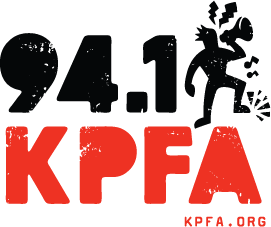
Incarcerated people work for penny wages, and, in several states, for nothing at all. Many of us outside of prisons rely on their labor in areas like repairing roads, fighting wildfires, or clearing debris after hurricanes. Prisoners manufacture products like office furniture, mattresses, license plates, dentures, glasses, traffic signs, garbage cans, athletic equipment, and uniforms. That’s just a portion of the work that incarcerated workers make.
On today’s show, we talk to authors of a new book that explores these labor practices called Abolition Labor , which draws connections between the labor forced on prisoners who hustle to survive on the inside and our precarious economy on the outside. The book argues that, far from being quarantined from society, prisons and their forced work regime have a sizable impact on the economic and social lives of millions of American households.
Our guests are two of the authors of that book, Andrew Ross and Tommaso Bardelli. Andrew Ross is a Professor of Social and Cultural Analysis at NYU, where he also directs the Prison Research Lab. Tommaso Bardelli is a Research Fellow at the NYU Prison Education Program Research Lab, where he conducts research on mass incarceration, financial debt, and their intersections.
—
Subscribe to this podcast: https://plinkhq.com/i/1637968343?to=page
Get in touch: [email protected]
Follow us on socials @LawAndDis:
https://twitter.com/LawAndDis;
https://www.instagram.com/lawanddis/
This post was originally published on this site be sure to check out more of their content.








